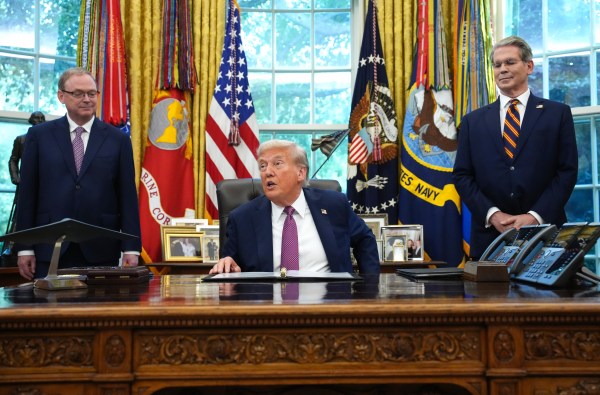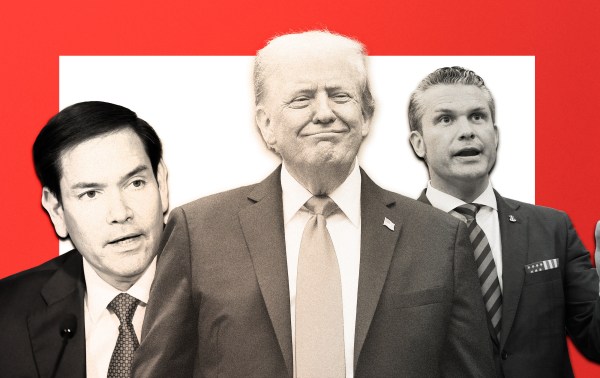It’s late one night. Cold outside. Dark. A group of friends has crashed a holiday party, only to find that the building they’re in has something hiding in the shadows. Something that leaves behind a trail of blood and taunting messages as it takes out everyone in this group one by one in violent death after violent death. I need not name the famous Halloween horror classic I am describing. I refer, of course, to Die Hard.
The 1988 Bruce Willis classic’s status as a Halloween movie is still contentious despite the overwhelming evidence found in the work itself. For all the debating and thinkpieces and Twitter “discourse,” the facts are simple: There is gore aplenty, John McClane is basically a 1980s Phantom of the Opera, and there are even hints of cannibalism. How could Die Hard not be a Halloween film?
There are those who suggest that the time of year ought to be the deciding factor. Die Hard is not, to their point, set on or around Halloween. But—to point out a fly in the ointment, a monkey in the wrench—neither is Beetlejuice, The Shining, A Nightmare on Elm Street, or a host of other films widely considered Halloween classics. There is even some precedent for Halloween movies set at Christmas. Take The Nightmare Before Christmas, with its twisted dissection of Christmas and Halloween culture, or Elf, with its creepy tale of a psychologically broken stalker who wreaks havoc on the life of a publishing executive. These tales’ Christmas trappings haven’t prevented them from entering the Halloween canon, because what makes a Halloween film isn’t the time of year that it is set but its seasonal themes. On the obverse, E.T. is set around Halloween, and the holiday even features in the plot in a significant way, yet you’d be hard pressed to find anyone who thinks the heartwarming tale of an alien coming to Earth is a Halloween movie. Halloween is prominent in Meet Me in St. Louis, though that’s universally considered a Christmas movie. Just because a movie isn’t set at Halloween doesn’t mean it isn’t a Halloween movie, and just because a movie is set at Halloween doesn’t mean it is a Halloween movie.
When one thinks of holidays, one thinks of the qualities and ideas associated with it. Take the most popular holiday for films as an example: Christmas has the birth of Christ, the gathering of family, the exchanging of gifts. It’s a time for togetherness and nostalgia and looking to the start of a new year. A Christmas movie must, necessarily, incorporate at least one of these concepts not just as window dressing but as its central, motivating idea. Without such an idea at the center, a movie cannot truly be described as a Christmas movie.
Halloween brings to mind death, disguising one’s identity, the gruesome, and fear of the unknown. All are not just present in Die Hard, but integral to the story. The entire point of this movie is to watch John McClane hunt down and kill the Gruber gang while remaining hidden. Nakatomi Plaza is a haunted house and he is its demon, bathed in blood and laughing villainously. With 10 lives ended at his hand in Die Hard, McClane’s death count in the film exceeds that of Michael Myers, Freddy Krueger, and Jason Voorhees in their respective film debuts.
With the facts considered, it’s time to put the debate over Die Hard as a holiday movie to rest. It is, and that holiday is Halloween. And now, because I have nothing more to say and it feels obligatory in an article about Die Hard: “Yippee-ki-yay, ***********.”
(We’re a family publication.)







Please note that we at The Dispatch hold ourselves, our work, and our commenters to a higher standard than other places on the internet. We welcome comments that foster genuine debate or discussion—including comments critical of us or our work—but responses that include ad hominem attacks on fellow Dispatch members or are intended to stoke fear and anger may be moderated.
With your membership, you only have the ability to comment on The Morning Dispatch articles. Consider upgrading to join the conversation everywhere.